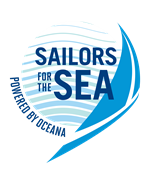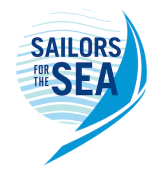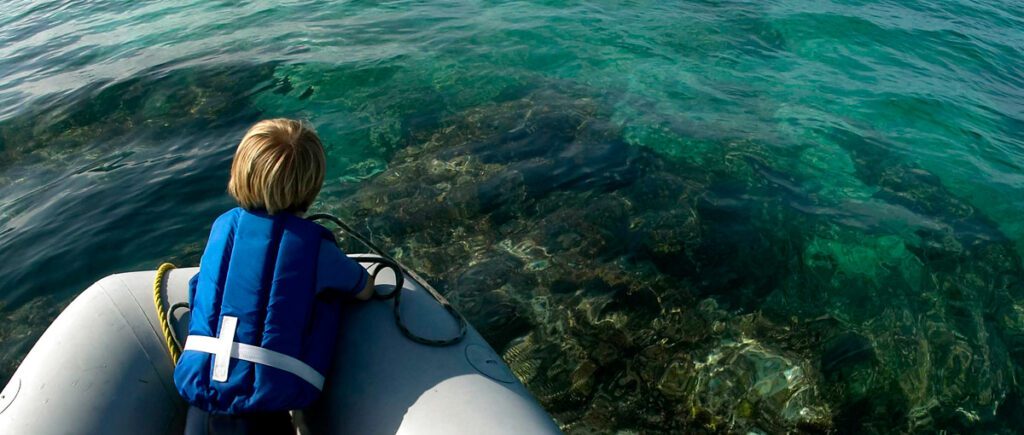Earth Month: How Clean Regatta Organizers Are Leading the Charge
From Participant to Platinum, in locations around the globe, all our Clean Regatta organizers have a sustainability story to tell. We learn so much from our organizers, with their experiences shaping our guidance and focus areas. To celebrate their successes and creativity, we are highlighting 4 events from different regions of the world.
This Earth Month we hope you are as inspired by these Clean Regatta organizers as we are!

Evita Zarina, Event Coordinator / Administrator
Bay of Islands Sailing Week (BOISW), New Zealand
How do you actively engage the local community in your Clean Regatta, and how is their involvement crucial to its success?
Bay of Islands Sailing Week actively involves the local community in our Clean Regatta efforts through collaborations with businesses, volunteers, and environmental organizations. We work closely with EcoSolutions and the local waste management team from Northland Waste to minimize landfill waste by ensuring proper separation of recyclables and compostables. Our Green Team, led by Resilient Russell, plays a vital role in educating participants on sustainable waste disposal throughout the event.
Another great example is our collaboration with the Wash-Not-Waste trailer, which provided reusable plates and cups at the event. Their presence not only reduced single-use plastics but also led to new partnerships with local food vendors, many of whom are now eager to use their services beyond the regatta. It’s a great example of how small initiatives can create a lasting ripple effect in the community.
Beyond waste management, we actively educate sailors and attendees on conservation efforts to ensure best boating practices in the Bay of Islands. In collaboration with Project Island Song, Department of Conservation, and the Harbour Master, we provide guidance on no-anchorage zones, no-take areas, biosecurity measures for visiting islands, and respecting the marine mammal sanctuary speed limits.
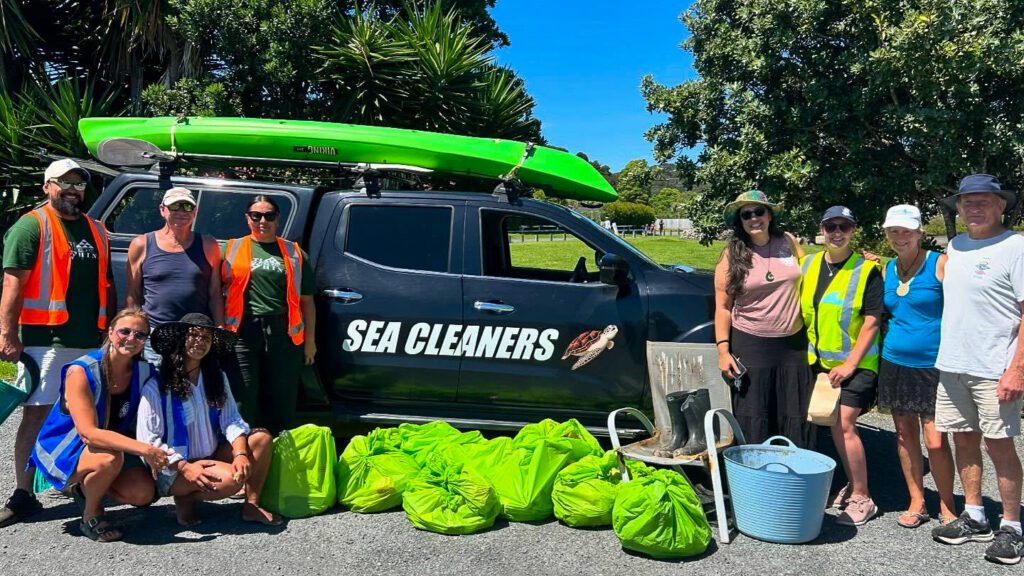
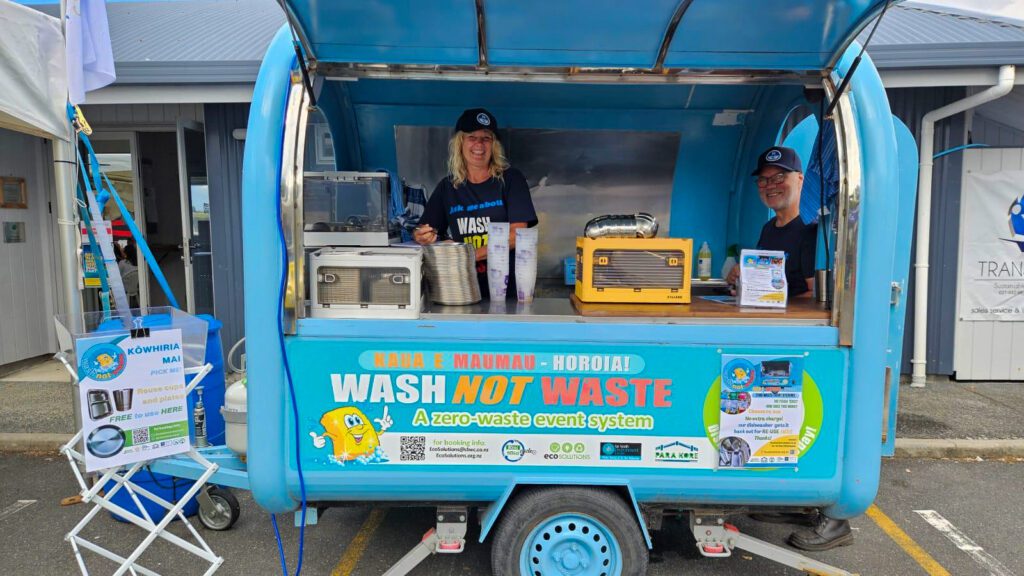
A major initiative that further strengthens our Clean Regatta efforts is the now-annual Bay-Wide Beach Cleanup, organized in partnership with Ocean Mind Project, Bay Beach Clean and local volunteers. This event unites sailors, local residents, and community groups in collecting rubbish across key coastal areas, including Waitangi, Paihia, Opua, Okiato, and Russell.
The involvement of the local community is crucial to the success of our Clean Regatta. It ensures that sustainable habits extend beyond the event, reinforcing the Bay of Islands’ reputation as an environmentally responsible sailing destination.
What impact does your Clean Regatta have on the local community?
Our Clean Regatta initiatives have significantly reduced the environmental footprint of the event, which is especially important in a region as naturally beautiful as the Bay of Islands. By implementing waste separation stations, eliminating single-use plastics, and promoting eco-conscious boating practices, we help ensure the area remains pristine for future generations of visitors, locals, and marine life.
Our focus on responsible sailing—including no-take zones, restricted anchorage areas where invasive Caulerpa is present, and adherence to marine mammal sanctuary speed limits—has raised awareness among sailors and contributed to better compliance with conservation regulations.
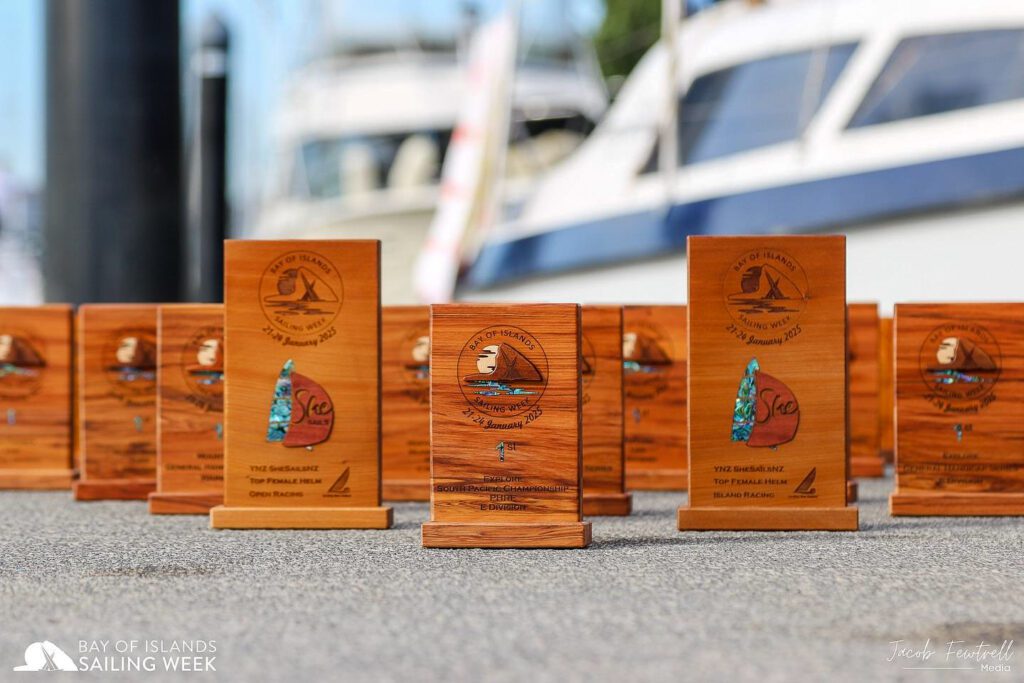
Beyond environmental benefits, our sustainability efforts also have a positive economic impact. The Bay of Islands is a world-class sailing destination, and promoting it as an eco-conscious event location strengthens its reputation, making it more attractive to responsible tourists. This benefits local businesses, tourism operators, hospitality providers, and marine service companies, as eco-conscious visitors and sailors are more likely to return to an area known for its commitment to preserving the marine environment.
What has been the most surprising insight or experience from being a part of the Clean Regattas Program?
One of the biggest insights has been how much education is still needed around sustainable event practices. While many sailors are enthusiastic and committed to reducing waste, we still see contamination in recycling and compost stations. This has highlighted the need for even better signage, clearer waste sorting stations, and more volunteer support to guide people through sustainable waste disposal.
Another eye-opening moment was the impact of the Wash-Not-Waste reusable cup/plate initiative. Over the course of the event, we washed around 800 reusable cups. If these had been single-use plastic cups, the number would likely have doubled or tripled, as people tend to throw them away instead of reusing. Seeing such a tangible reduction in plastic waste reinforced the importance of offering sustainable alternatives rather than just asking people to change habits.
We’ve also learned that small incentives can drive big behavior changes. Whether it’s spot prizes for sustainable choices, or encouraging teams to adopt digital race documents instead of printed versions, we’ve seen that initial resistance often turns into acceptance once people understand the benefits.
Most importantly, the Clean Regatta mindset has fundamentally changed how we approach event planning. Every year, we now ask ourselves: “Can this be done in a more sustainable way?”
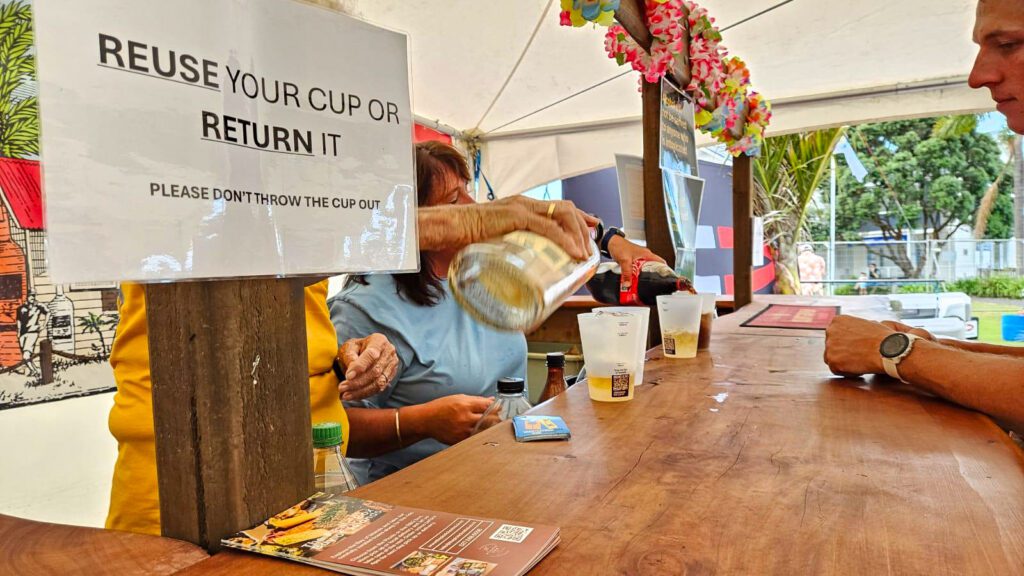
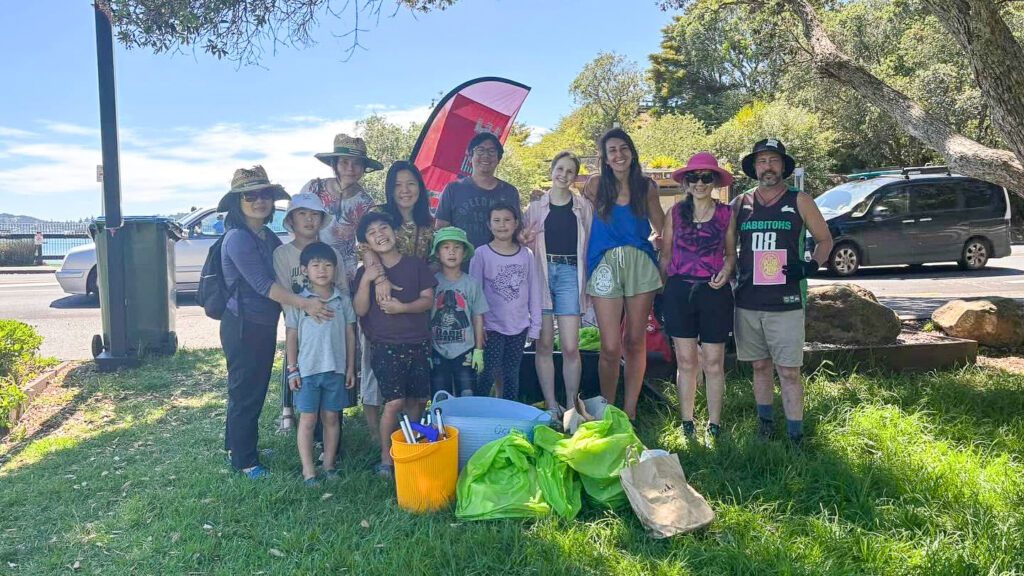
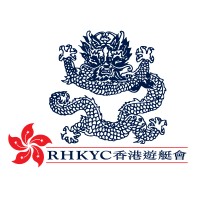
Denny Lee, Manager of Health, Safety, and Sustainability
Royal Hong Kong Yacht Club (RHKYC)
How do you actively engage the local community in your Clean Regatta, and how is their involvement crucial to its success?
To actively engage the local community in our Clean Regatta, we implement several strategies. First, we encourage community members to volunteer for various roles such as waste management, outreach, and event setup. This not only aids in the smooth operation of the event but also inspires a sense of ownership and responsibility towards sustainability. Additionally, we conduct pre-event workshops and seminars on sustainable practices, the importance of clean waters, and individual contributions, tailored to different age groups and interests within the community. We also collaborate with local businesses, schools, and environmental groups to leverage their resources and networks; for instance, local businesses might sponsor eco-friendly products used at the event. Furthermore, we set up interactive and fun activities that educate participants about sustainability, including recycling games, clean-up drives, and demonstrations of green technologies.
The involvement of the local community is crucial to the success of our Clean Regatta for several reasons. Increased awareness and education among community members turn them into ambassadors for the cause, spreading awareness far beyond the event itself. The enhanced resource pool, with more hands and diverse skills, leads to better execution of green practices and more effective waste management. Moreover, when locals are actively involved, they are more likely to adopt and advocate for sustainable practices in their daily lives, thereby amplifying the event’s impact. Finally, an engaged community is more likely to support future initiatives and policies aimed at environmental conservation, ensuring the longevity and reach of our sustainability efforts.
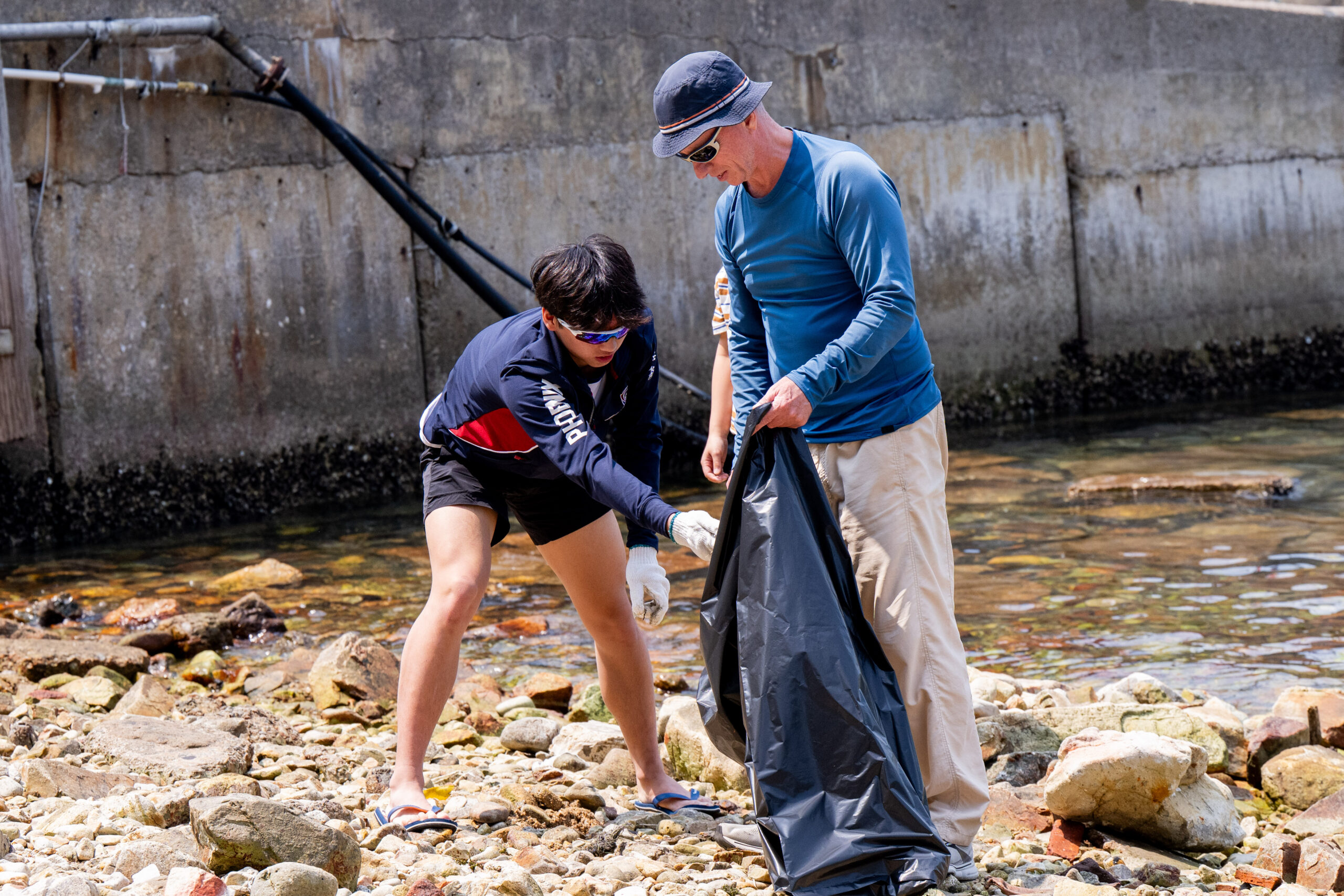
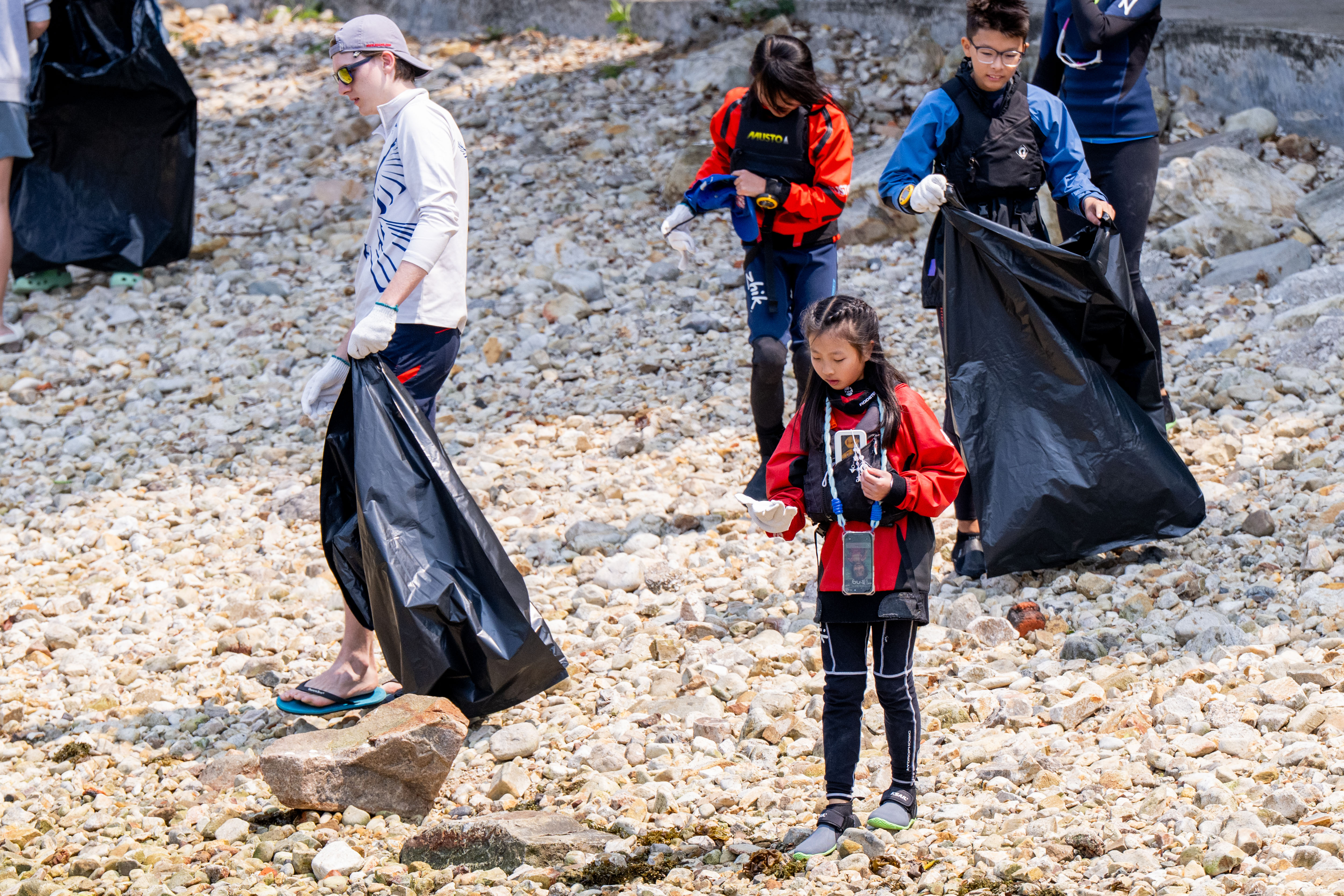
Clean Regatta has been a part of our yearly regattas, especially the major ones, since 2015. Apart from beach clean-ups, Club subcommittees also organize their own clean-ups and sustainability-related initiatives together with companies who are also looking for community engagements, particularly those related to sustainability and environmental preservation. Success comes from continuing to promote Clean Regatta and working with NGOs and local businesses whose initiatives and products ensure that environmental preservation is their main priority. The Club regularly invites speakers related to environmental preservation to raise more awareness among our Club members and encourage them to spread this knowledge to their families and networks.
What impact does your Clean Regatta have on the local community?
The impact of our Clean Regatta on the local community is multifaceted, encompassing environmental, social, economic, and health dimensions. Environmentally, the event significantly improves water quality by focusing on reducing pollution and waste, which directly benefits marine life and enhances recreational activities. The implementation of recycling and composting programs also reduces the amount of waste sent to landfills, promoting a more sustainable waste management approach.
Socially, the event fosters community cohesion by bringing together diverse groups of people, creating a sense of community and shared purpose. It also serves as a platform for education and behavior change, as participants and spectators learn about sustainable practices, which can lead to long-term changes in their behaviors. This learning and adoption of sustainable practices create a chain reaction. Members take on the habits per Club practices and, in turn, share the best practices with their families, friends, and respective companies.
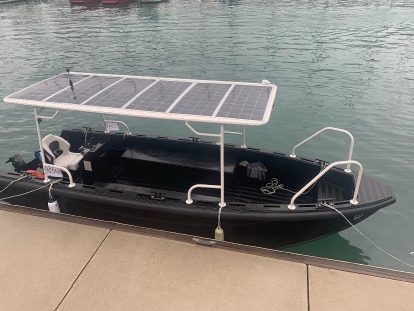

Economically, the event boosts the local economy through increased tourism and supports local vendors who adhere to green practices, encouraging a sustainable economic model. Lastly, the promotion of water sports and activities in a clean environment encourages physical activity and mental well-being among community members, contributing to overall health and quality of life.
Moreover, our Club sets the example for other Clubs in Asia to follow. By demonstrating the positive impacts and successful implementation of sustainable practices, we inspire and encourage other organizations to adopt similar initiatives, further amplifying the reach and effectiveness of our efforts.
What has been the most surprising insight or experience from being a part of the Clean Regatta Program?
Participating in the Clean Regatta Program has yielded several surprising insights and experiences. One of the most notable has been the high level of enthusiasm and active participation from the community, which often exceeds our expectations. This demonstrates a strong underlying desire for environmental action among the local population. Another significant insight has been the innovative solutions that local participants bring to sustainability challenges, leveraging their specific knowledge of the area to create effective and creative approaches.
We have also observed tangible behavioral shifts among regular participants and the broader community regarding waste and resource use. These changes are a powerful affirmation of the program’s impact and its ability to influence long-term attitudes and practices. Additionally, the program has successfully engaged multiple generations, from children to seniors, each bringing unique perspectives and energy to the sustainability efforts. These insights not only highlight the immediate benefits of the Clean Regatta program but also underscore its potential to catalyze lasting change within the community.
However, there’s still a lot of work to be done, and human habits still need to be corrected as rubbish continues to float in our ocean and endanger marine lives. Despite these challenges, it is encouraging to see that young generations are learning and practicing good habits. The Club presses on and uses Clean Regatta as a guideline in setting our Club standards higher each time. This ongoing commitment ensures that we continue to make progress and adapt our strategies to address the persistent issues effectively.
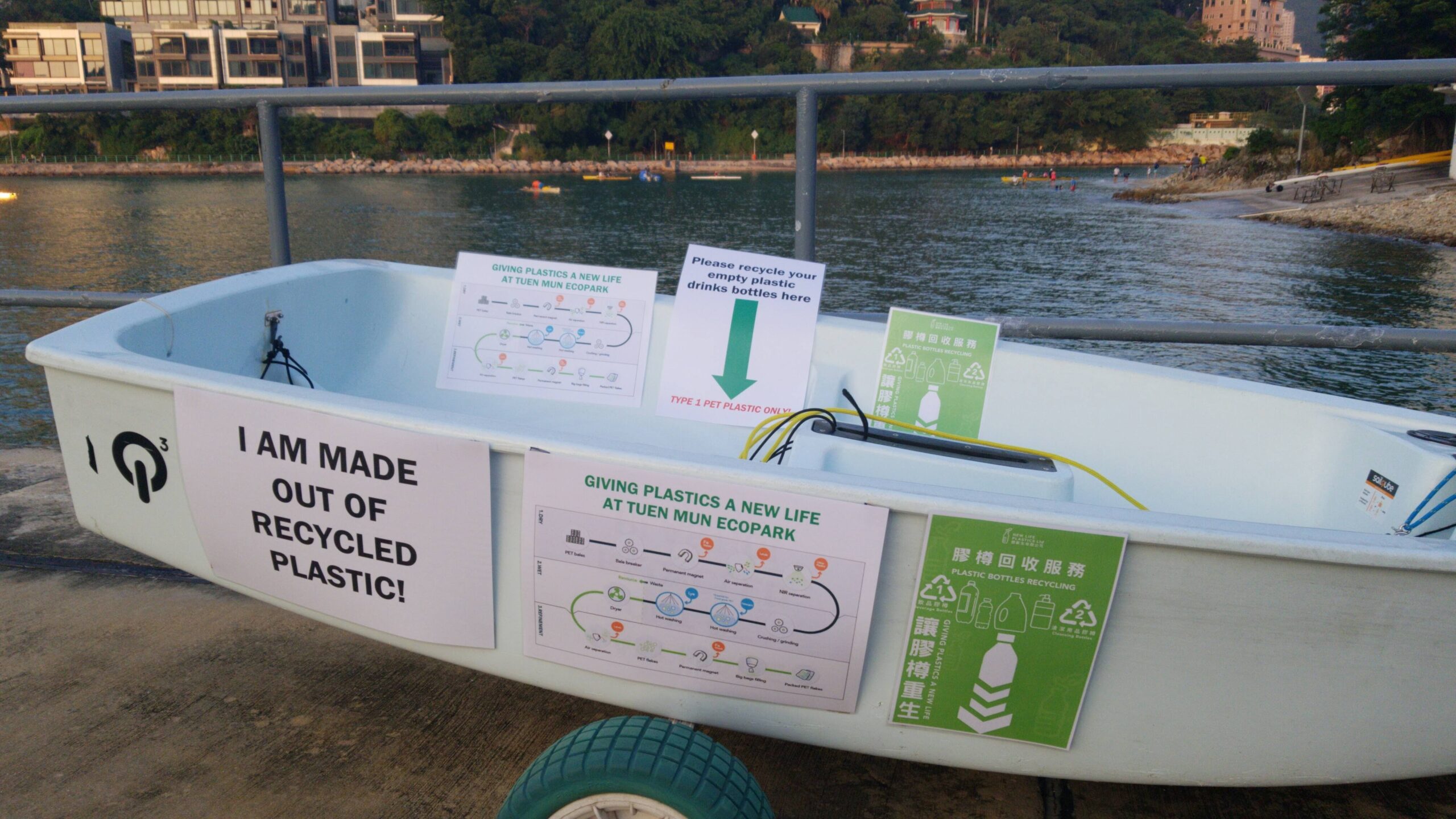
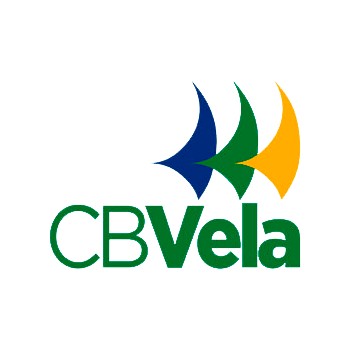
Sandra Di Croce Patricio, Manager of Institutional Relations and Sustainability
Confederação Brasileira de Vela (CBVela – Brasil)
How does your Clean Regatta involve the local community and how is that involvement mutually beneficial?
In November 2024, we held a championship exclusively for women sailors, organized entirely by women. It was the CBVela Women’s Sailing Trophy, hosted in Niterói, Rio de Janeiro. For this event, we decided to implement several actions from the Clean Regattas program.
During the championship, the CBVela Green Team discovered an incredible atmosphere of collaboration and commitment among the women involved—one that extended far beyond the event itself.
One of the key outcomes was a partnership between CBVela and the Universidade Federal Fluminense (UFF), a public university. Together, we began developing a model to measure the carbon footprint and the positive economic impact of sailing events. This marks the beginning of a long-term collaboration between sports and academia—bringing sailing into the conversation on climate change.
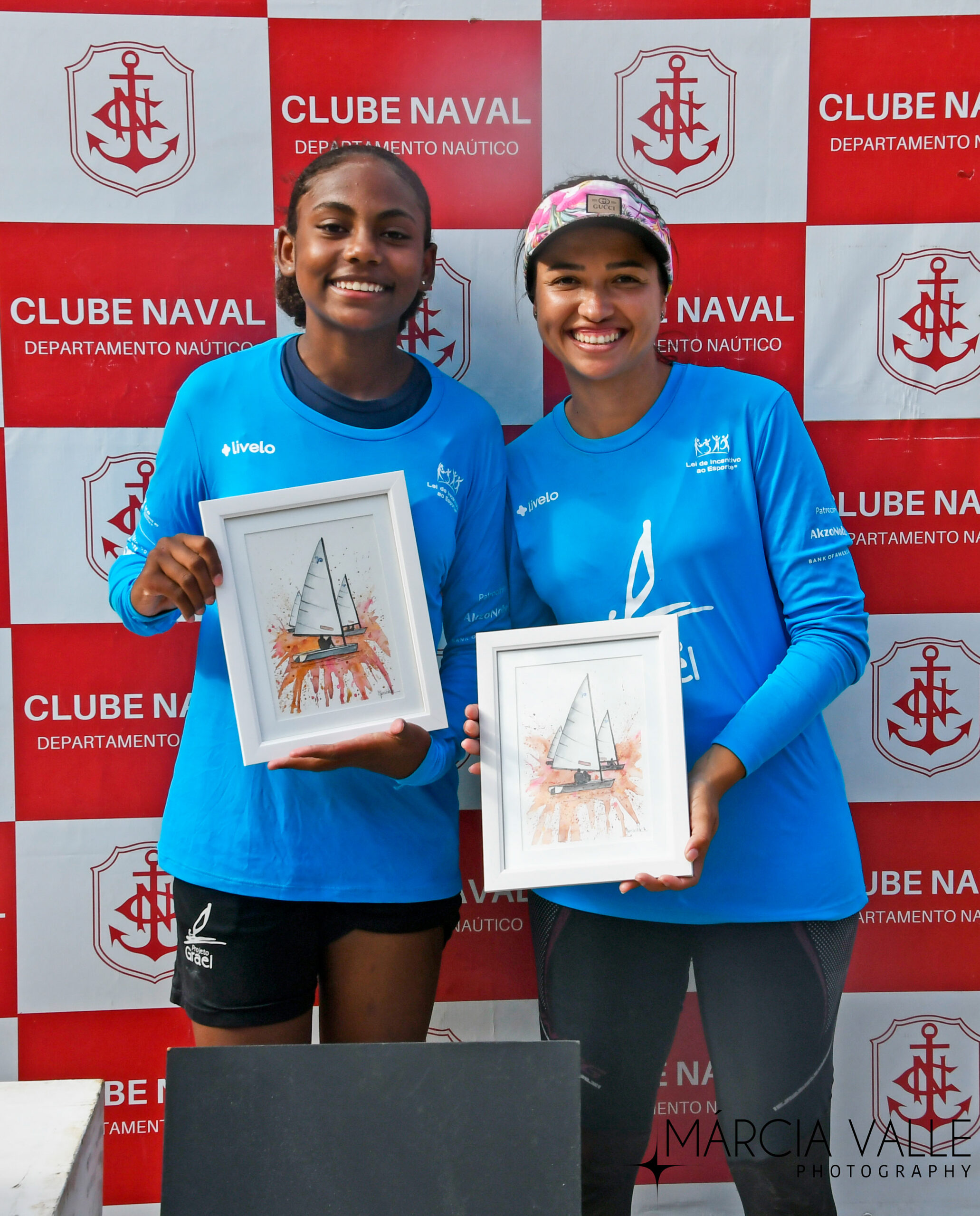
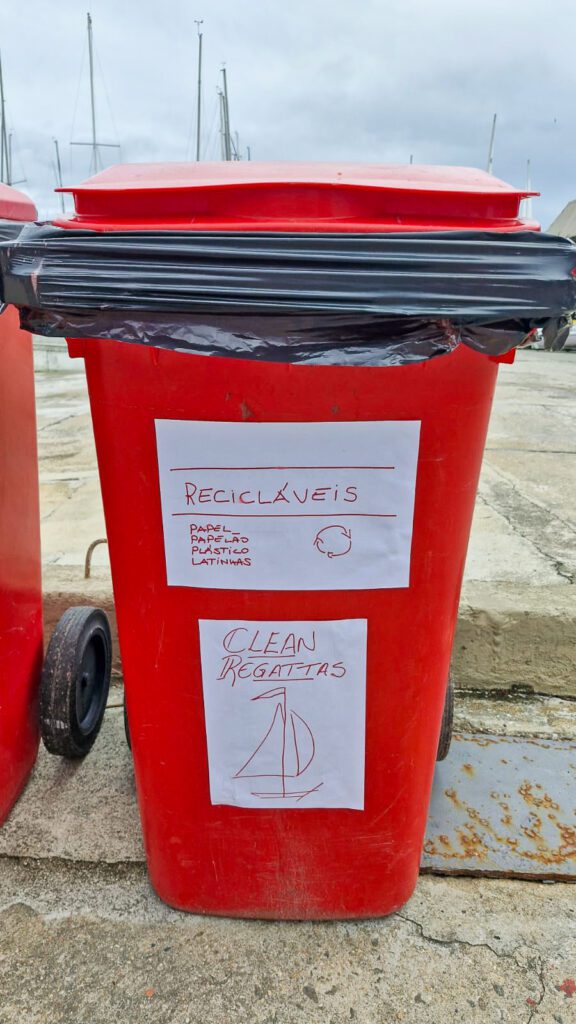
This partnership is especially meaningful now, as Brazil prepares to host COP30. We believe that sailing can play an important role in raising awareness of environmental issues, grounded in scientific knowledge.
The Women’s Sailing Trophy was CBVela’s first hands-on experience with the Clean Regattas program. Through it, we built a strong connection between the local public university and our sailing community—one that is already showing long-term benefits.
Thanks to this collaboration, CBVela is now officially registered with the National Council for Scientific and Technological Development (CNPq), a public foundation linked to Brazil’s Ministry of Science, Technology, Innovation and Communications.
Another major sustainability achievement also emerged from the Clean Regattas program during this event.
With the support and engagement of the women sailors, we were able to complete the crossing of scientific equipment across Guanabara Bay—from Niterói to Rio de Janeiro. The “Caravelas,” created by the startup Infinito Mare and supported by CBVela, were towed by sailor Mariana Borges. These Caravelas are an innovative, nature-based solution inspired by sailboats, designed to help clean polluted waters.
To the entire Clean Regattas community, we want to say: all the effort to implement sustainability is truly worth it. The impact goes far beyond any certification.
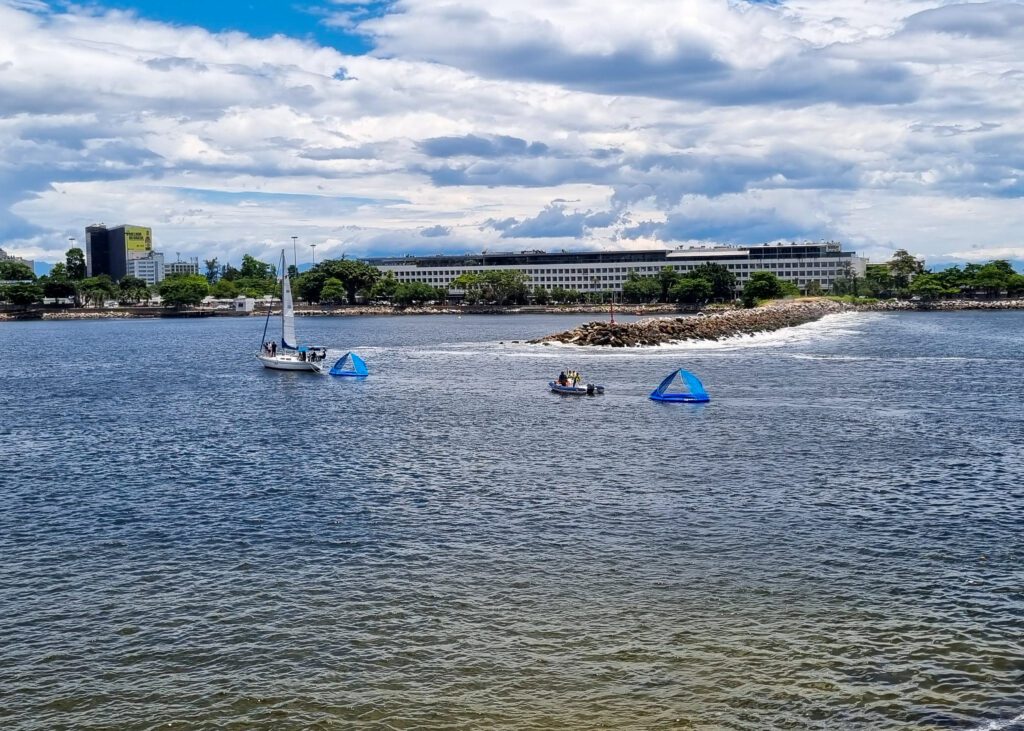
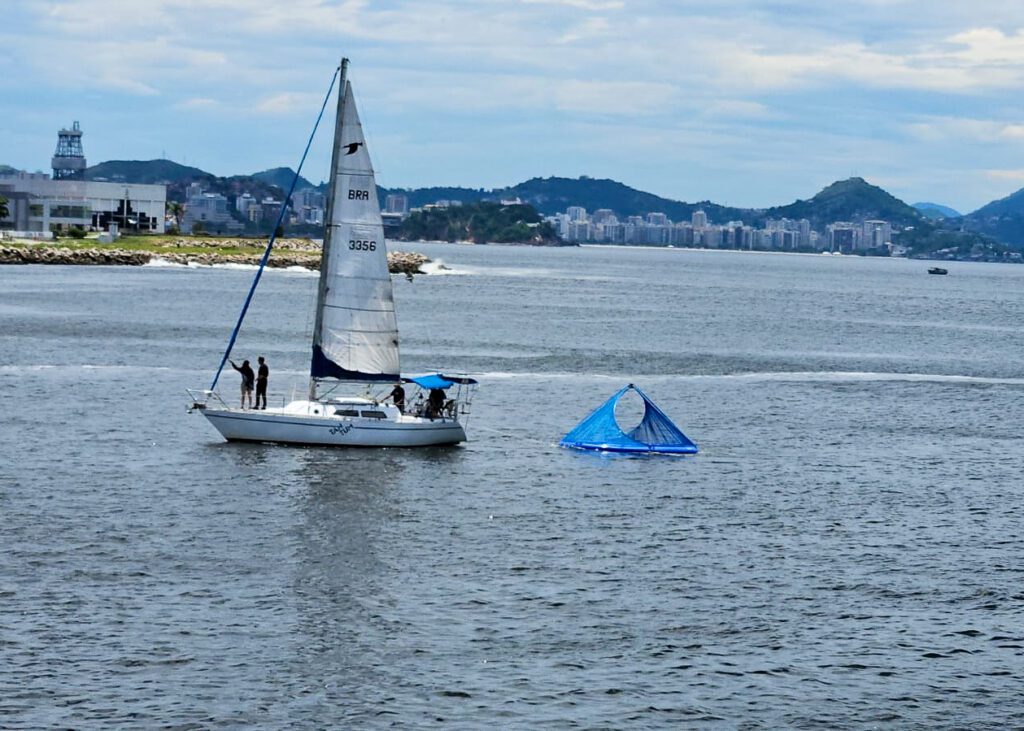
If you’re interested in registering your event as a Clean Regatta, click here to learn more!
